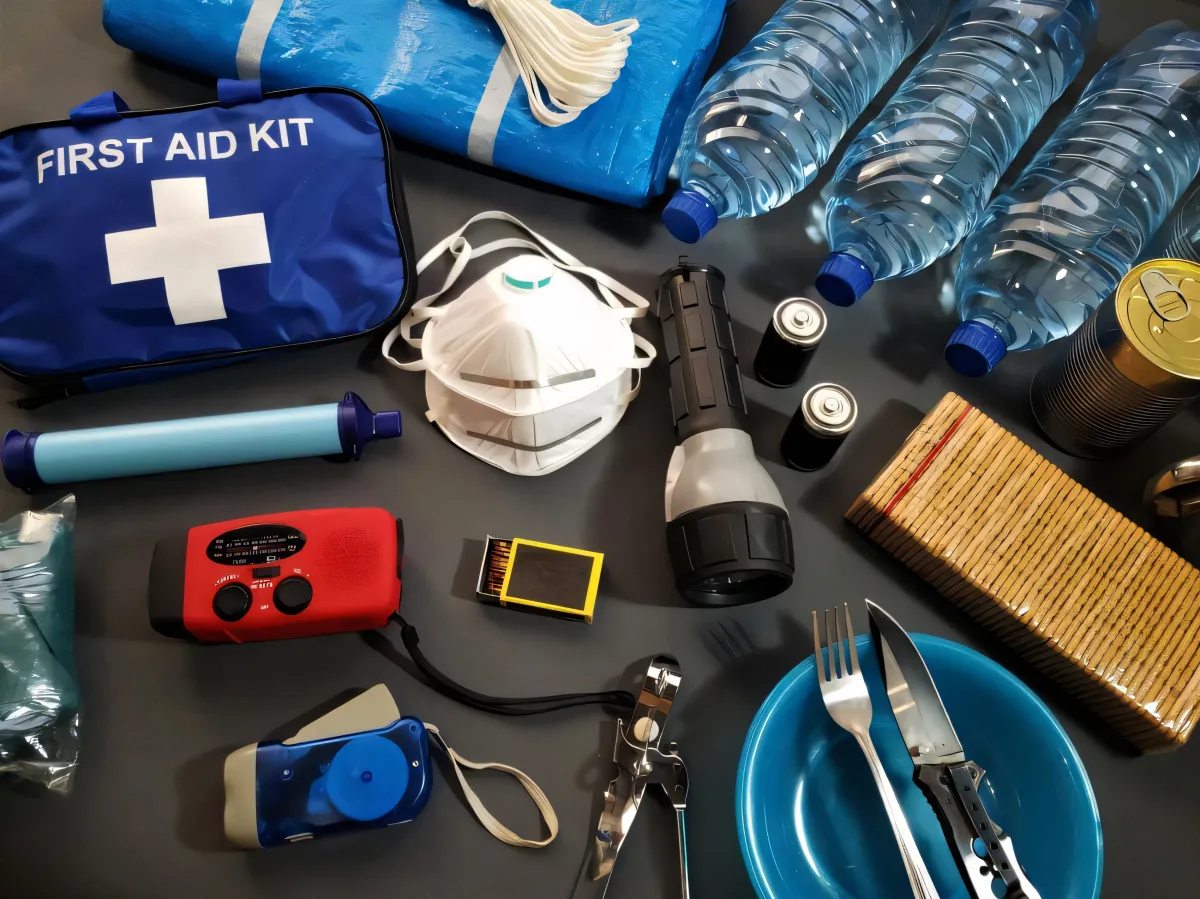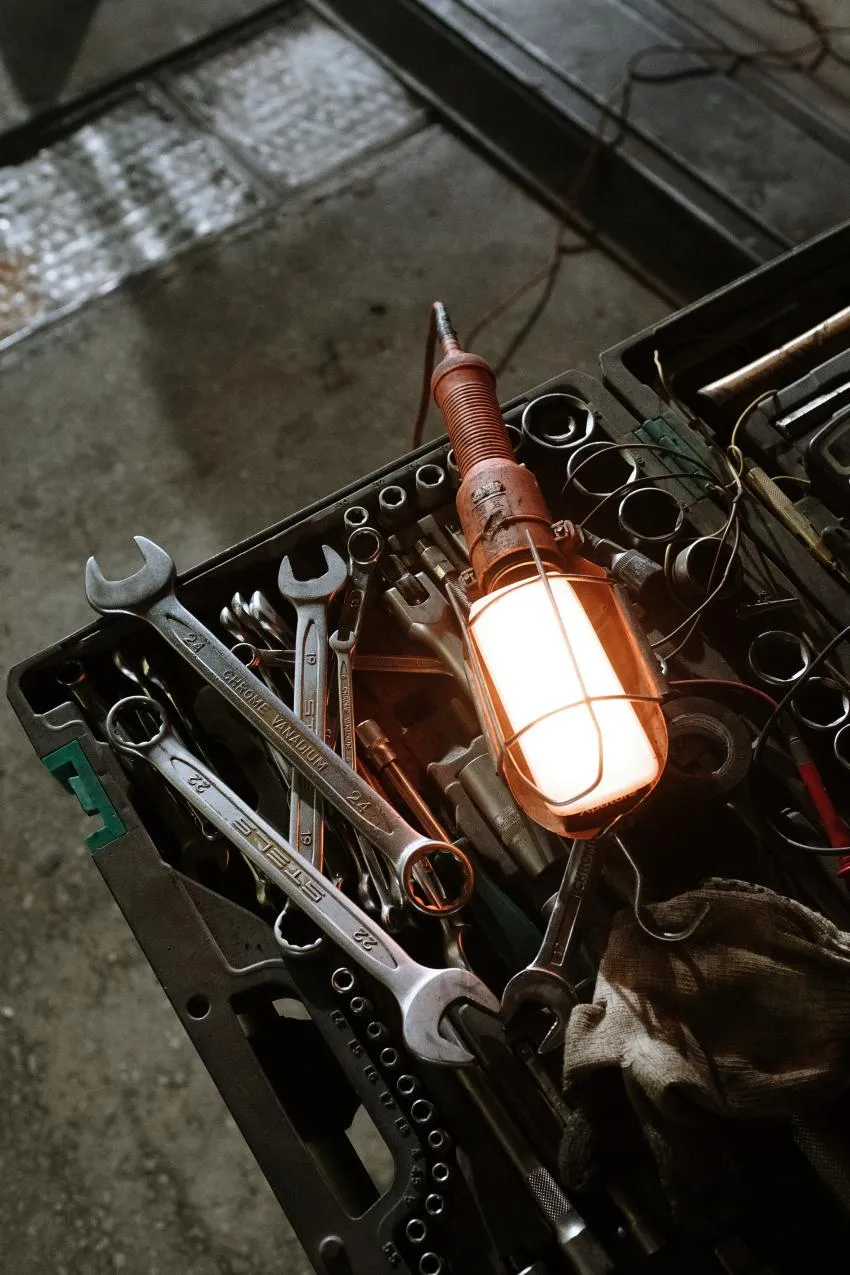The Ultimate Survival Preparation List For An Emergency Crisis

Flashlights, canned food, bottled water. Seemingly idle commodities that grace the cupboards of many, but when disaster strikes, grocery store shelves are left as desolate wastelands in people's frantic efforts to possess these items for survival. News media outlets show lines of people waiting hours for just a loaf of bread in disaster-struck areas. Why? Sadly, many are unprepared for emergency situations.
With unexpected natural disasters and the pandemic of 2020, it has opened the eyes of many in that it would be wise to develop a game plan for the next occurrence. “Always be prepared” is not a motto that should only apply to the Scouts. If you can count on anything in this topsy-turvy world, it’s that you can always expect the unexpected. Don't be one of the thousands standing in line; get prepared for life's next surprise.
How should I Prepare for an Emergency Crisis?
Preparing for emergency situations can be a slow process unless you’re a millionaire because there are a number of items to stock up on and consider. You will have to buy enough food for a minimum of two weeks and possess items that are not dependent on water or electricity for maximum self-reliance. Don’t break the bank by running out and stocking up on supplies in one visit. Rather, every time you go to the store for your regular shopping, buy two or three emergency items (or more depending on your budget) to build your cache up over time. The list provided is an outline of items necessary and useful for emergency situations.
What Food Should I Have In Store In Case of an Emergency?

Just because food options are limited during a disaster, it doesn’t mean that you and your family have to survive on just rice and beans. It is important to make sure that you have food that will provide the necessary nutrients to keep you healthy. A body under stress coupled with bad nutrition is a recipe for illness. Make sure that you are staying as healthy as possible, and if at all possible, buy organic when you can. I am listing items for several categories of food. Don’t feel compelled to buy all the suggestions. Buy what you and your family will eat.
Here are the food items you should have in store to keep yourself prepared for an emergency crisis:
Canned Vegetables:
- Carrots
- Green beans
- Pasta Sauce
- Mixed Vegetables
- Tomatoes
- Peas
Dried or Canned Fruits:
- Dried cranberries
- Banana chips
- Plantain chips
- Raisins
- Fruit leathers
- Apple sauce
- Peaches
- Pears
- Pineapple
Protein
Canned Beans:
- Northern
- Cannellini
- Black-eyed peas
- Black Beans
- Pinto Beans
- Lima Beans
- Pinto Beans
- Kidney Bean
- Garbanzo Beans
Protein Bars : (sugar content should not exceed 15g)
- Kind Brand
- RXBAR Brand
- CLIF Bar Brand
- Paleo Protein
Canned Meats:
- Tuna
- Sardines
- Chicken
- Turkey
- Corned Beef
- Vienna Sausages
- Beef Jerky
Nuts/Seeds:
- Pumpkin Seeds
- Almonds
- Mixed Nuts
- Peanuts
- Walnuts
- Pecans
- Pistachios
Nut Butters:
- Peanut Butter
- Almond Butter
- Cashew Butter
Grains and Starches
When stocking the pantry, keep in mind that grains and starches, other than cereal, will not really serve you well if you are out of electricity or water (unless you have water to spare and an outdoor oven or grill). They, however, are a great commodity if you have both utilities and just need to hunker down. Flour makes for a really great survival food because it is so versatile. Just add sugar, water, and yeast and you’ve got yourself a recipe for bread, pizza, chicken pot pie, etc.
Flour:
- White Flour
- Pancake Mix
- Cornbread Mix
- Muffin Mix
Pasta:
- Fettuccine
- Macaroni
- Spaghetti
- Ramen
- Bow Tie
- Shells
Others:
- White Rice
- Quinoa
- Sorghum
- Grits
- Farro
- Oats
- Muesli (combination of oats, whole grain wheat, raisins, almonds, and walnuts)
Miscellaneous Food Items to store for an Emergency
These items tie everything together and add flavor to your meals:
- Salt
- Sugar
- Cooking Oil
- Baking Powder
- Baking Soda
- Vinegar (serves multiple purposes)
- Spices
- Vanilla Extract
- Yeast
- Worcestershire Sauce
- Coconut Oil
- Olive Oil
Condiments:
- Syrup
- Soy Sauce
- Hot Sauce
- Honey
- Salad Dressing
- Jelly
- Mustard
- Ketchup
Snacks
Being hunkered down in close quarters or in complete solitude can really weigh on a person. Make sure to include some fun foods that will help keep morale up.
- Cookies
- Popcorn
- Candy
- Chocolate
- Chips
Hydration
Hydration is paramount to survival; you know, seeing as a human can only survive without water for a few days. When stocking up on beverages, make sure that water is first and foremost in higher quantities than other options. Be mindful of soda or beer; they induce thirst, not quench it. Tread lightly with other hydration options.
- Bottled Water
- Tea
- Coffee
- Coconut Water
- Powdered Milk
If diarrhea or vomiting happens while you are in survival mode and you do not have Gatorade on hand. Here is a simple recipe that costs way less and available in a pinch:
34oz (1 liter) Water
6tsps Sugar
1/2 tsp salt
If you want it to taste more than just water and you have access, you can add in flavorings such as fruit juice or freshly squeezed fruit.
What are Useful Tools to Have During an Emergency?

When thinking about preparation, consider situations you could encounter. If you run out of water, you will need buckets to transport or store water. What happens if the lights go out? You will need a flashlight. With that, you will need batteries. If you lose cell service, you will have to rely on radios for information.
Here are the useful items to add to your tool list while preparing for an emergency crisis:
General:
- Glow sticks
- Buckets
- Flashlights
- Batteries
- Ropes
- Rags
- Can opener (hand-cranked)
- AM/FM Radio
- Candles
- Gas grill
- Propane for gas grill or heater
- Pocket Knife
- Duct tape
- Siphon hose and pump
- Fire extinguisher
- Survival guide book
- Fire Starters: Lighter, matches, kindling
- Blankets, sleeping bags, inflatable mattress, or cots
- Water purifiers, filters, and containers
- Rubbing alcohol
- Hand Sanitizer
- First aid kit
- Hand Warmers
Hygiene:
- Kleenex
- Washcloths
- Hand lotion
- Feminine hygiene products
- Lip balm
- Baby wipes (useful for hygienic wipe downs)
- Baby supplies if you have a baby
- Pet supplies if you have a pet
- Toilet paper
- Paper towels
- Soap
- Dry shampoo
Entertainment:
- Books
- Magazines
- Writing papers
- Pencils
- Deck of cards
An emergency crisis will never warn you before it hits, so stay prepared. Always!
Opinions and Perspectives
Wondering if anyone has experience with long-term food storage in humid climates?
The tip about buying a few items each shopping trip is really practical.
Love how practical this advice is. No extreme survival stuff, just sensible preparation.
The lists helpful but seems aimed at families. Single folks might need to adjust quantities.
The pandemic taught me to never underestimate the importance of hand sanitizer.
I find it helpful to store items in clear containers so I can easily see what needs restocking.
I keep most of my supplies in plastic bins. Makes it easy to grab and go if needed.
Don't forget about comfort foods. Sometimes a familiar snack can really boost morale.
The nut butter selection seems excessive. One or two types would suffice.
Would love more specific recommendations for those living in apartments with limited space.
I rotate my canned goods into regular meals every six months to keep everything fresh.
Remember folks, emergency prep isn't about doomsday, it's about peace of mind.
These lists always make me feel inadequately prepared, no matter how much I stock up.
The article doesn't mention cash. Always good to have some emergency money on hand.
Don't forget about seasonal considerations. Your emergency needs in summer differ from winter.
My kids complained about our emergency food until they actually had to use it. Now they help me choose items.
Each type of bean has different nutrients and textures. Variety is good for long-term situations.
I question the need for so many different types of beans. Seems redundant.
Wondering about alternatives for those with food allergies. Some of these items wouldn't work for everyone.
I learned the hard way that storing water in used milk jugs isn't a good idea. They break down over time.
A manual coffee grinder saved me during our last power outage. Definitely adding that to my list.
I started with just water and some canned goods. It's amazing how much my emergency supplies have grown.
The list forgets about important documents. We should all have copies of IDs and insurance papers ready.
I find it interesting they recommend organic food. In an emergency, I don't think that should be the priority.
The hand-cranked can opener is such an important detail. My electric one was useless during our last power outage.
Not having preparations makes me way more anxious! I sleep better knowing we're ready for most situations.
Am I the only one who thinks preparing for emergencies just makes me more anxious about them?
The spices section is underrated. Plain rice and beans get old fast without proper seasoning.
I'd add board games to the entertainment section. They're great for keeping kids occupied during power outages.
Price shouldn't be the main concern when it comes to emergency supplies. Quality matters when you really need it.
Actually looked up those RXBAR protein bars mentioned. They're pretty expensive compared to regular ones.
What about camping gear? A good tent and sleeping bags could be crucial if you need to evacuate.
I appreciate how the article breaks down the food categories. Makes it less overwhelming to start building a supply.
The list seems oriented toward urban settings. Those of us in rural areas might need different items.
My family thought I was crazy for keeping all this stuff, until we had that major ice storm last winter. Guess who they called?
The protein bar sugar content tip is really helpful. I would've just grabbed whatever was on sale.
I use a spreadsheet to track expiration dates and rotate items into my regular meal planning when they're getting close to expiring.
I'm concerned about storage space and rotation of food items. How do you keep track of expiration dates?
What about solar powered chargers? Those should definitely be on the tools list.
You'd be surprised how important entertainment becomes during extended emergencies. I was stuck during a weeklong blackout and books saved my sanity.
The entertainment section seems unnecessary to me. In a real emergency, we'll have bigger concerns than playing cards.
I actually started my prep journey after the 2020 pandemic. Nothing like empty shelves to motivate you!
Good point about the food not being just rice and beans. Mental health is important during crisis situations and having variety helps.
I noticed the list doesn't mention medications. We should also keep a backup supply of essential prescriptions if possible.
Trust me, after going through Hurricane Sandy, no amount of preparation seems excessive anymore. Better to have it and not need it.
Anyone else think storing that much food is a bit excessive? I barely have enough pantry space for my regular groceries.
The hydration section really opened my eyes. I never knew about that simple DIY electrolyte solution recipe. Going to write that one down.
I've been slowly building my emergency kit over the past few months. Making small additions each grocery trip has made it much more manageable financially.